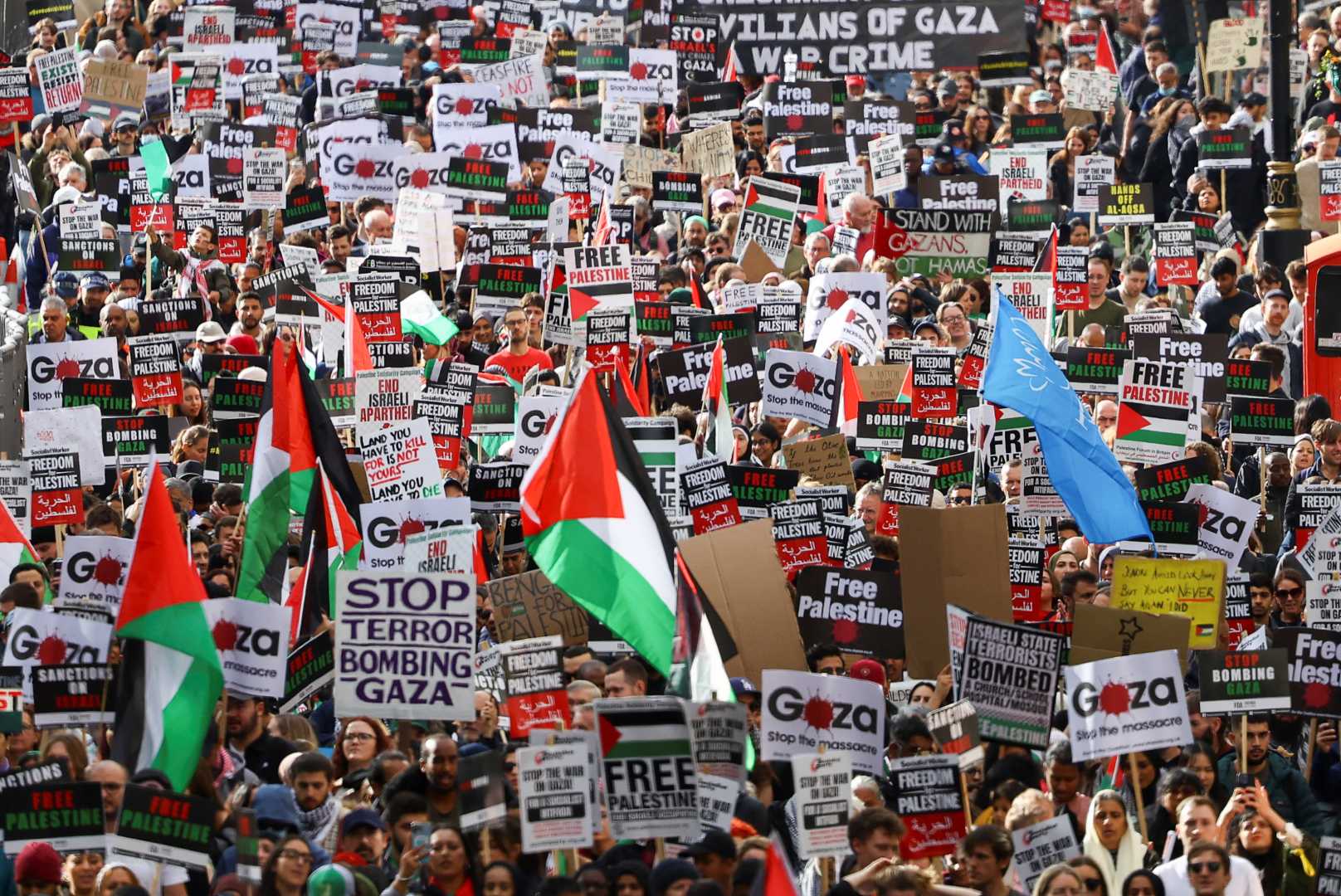World
The Cultural Revolution of Human Rights Organizations Amidst Conflict

WASHINGTON, D.C. — In early October, a pro-Palestinian demonstration in London marked a significant moment in the ongoing Israeli-Palestinian conflict, coinciding with the one-year anniversary of the Hamas attacks on Israel. Protesters chanted against Israel, underscoring a growing global narrative that has evolved significantly over the past year.
Among the voices supporting this narrative is the U.K. chapter of Amnesty International, which has shifted its messaging to align more closely with contemporary activism. A recent protest featured a young demonstrator, clad in a red shirt and keffiyeh, proclaiming, “Don’t let anyone tell you this all started on the seventh of October, 2023.” This marks a departure from Amnesty’s traditional emphasis on impartiality.
The video, which garnered millions of views on social media, included a placard stating, “It’s been 76 years & 364 days,” implying a denial of Israel’s legitimacy. This approach reflects a broader trend within major human rights organizations, which have increasingly adopted a partial stance that tends to blame Israel more than other parties involved in the conflict.
Historically, organizations such as Amnesty International and Human Rights Watch were founded on the principle of impartiality, refusing to align with any governmental or political ideology. However, a shift toward a more partisan view can be seen through the lens of activists and young workers within these organizations, who carry passionate ideological commitments that have begun to influence the agendas of their organizations.
The internal discourse at prominent human rights organizations such as Amnesty has led to accusations of an ideological bias against Israel. Rasha Khoury, board president of Doctors Without Borders USA, is a notable figure embracing this shift, likening the current humanitarian situation in Palestine to colonial oppression. Some within these organizations argue that they are focusing heavily on the plight of Palestinians while neglecting the implications of Hamas’s actions.
Responses from human rights groups regarding the recent escalation of violence have faced scrutiny. While many issued statements condemning the loss of civilian life on both sides, there is a perception among some that the criticism of Israel has outweighed acknowledgment of terrorism that instigated such violence.
Roy Yellin, an activist in Israel, expressed concerns that the narrative regarding Israel has become increasingly one-dimensional. “A troubling aspect is that I see colleagues in the international community completely denying what Hamas did in Israel,” Yellin said. This tightening of perspectives could complicate dialogue and efforts toward peace.
On October 7, Hamas militants launched an attack on Israeli civilians, resulting in a deadly response from the Israeli military, signaling to many within human rights organizations significant moral dilemmas. Critics of the narrative raging within human rights organizations suggest a tendency to view Israel solely as an oppressor, ignoring the complexities of its security concerns and the multifaceted nature of the local populations.
Competing narratives within these organizations have led to internal strife, with some staffers feeling alienated for expressing even mildly critical views on how their organizations approach the Israel-Palestine conflict. Many of these discussions have surfaced through emails and social media posts by human rights leaders.
Despite the nuanced nature of the conflict, some Amnesty staff members have been accused by colleagues of engaging in ‘Israeli propaganda’ for suggesting a balanced perspective regarding Israel and Hamas. Resignations have occurred as disillusioned staff members express disappointment in increasingly unilateral criticisms against Israel.
This growing divide has sparked calls for accountability within organizations that claim to advocate for universal human rights. The shift toward a more passionately divisive narrative regarding Israel and Palestine raises questions about the future role of established human rights institutions.
In conclusion, as the cultural and political landscape continues to shift, human rights organizations face existential questions about their neutrality and commitment to addressing the complexities of states and non-state actors involved in the Israel-Palestine conflict. The challenge remains: can these organizations ever return to their roots of impartiality, or will they remain engulfed in the ideological battles of the present? For many, reassessing their positions on global conflicts could redefine their missions going forward.












